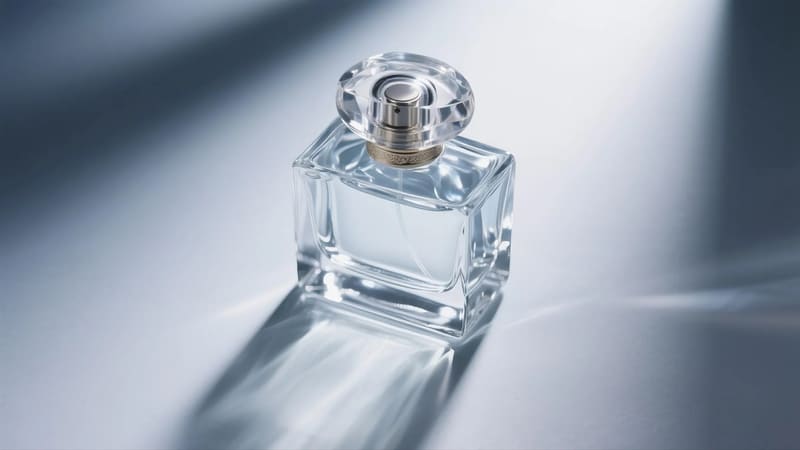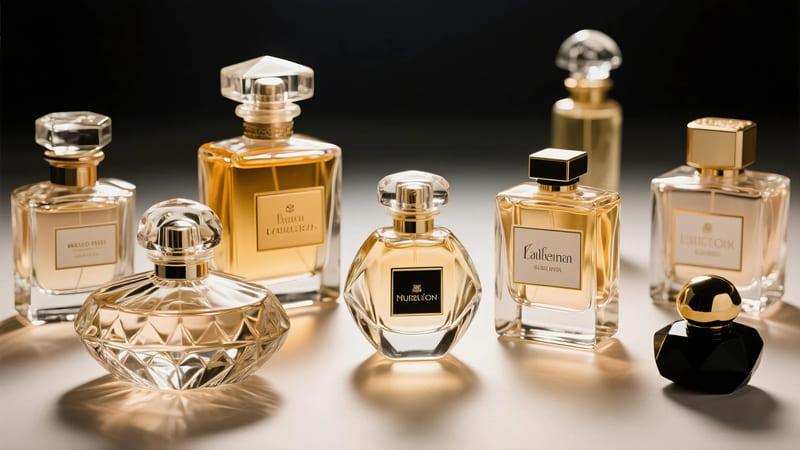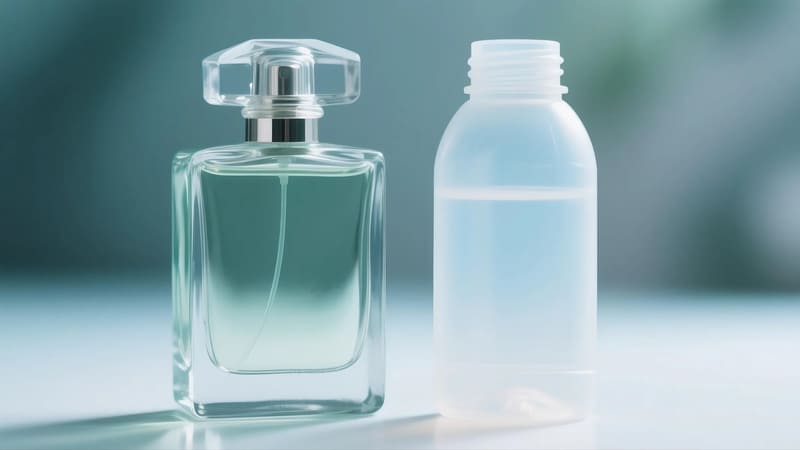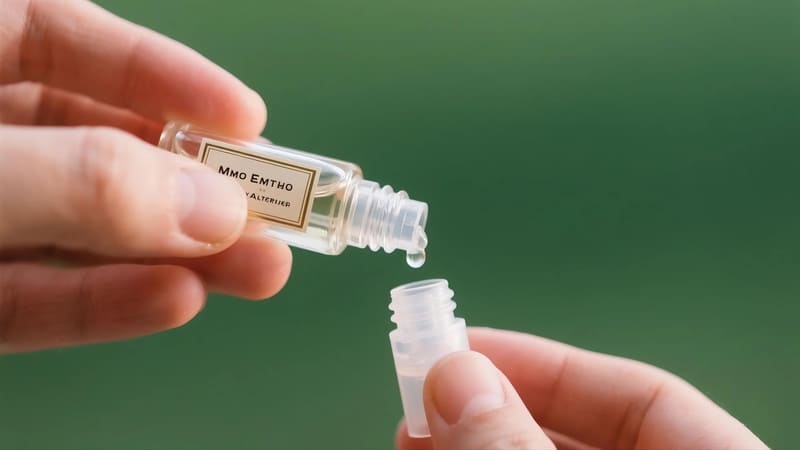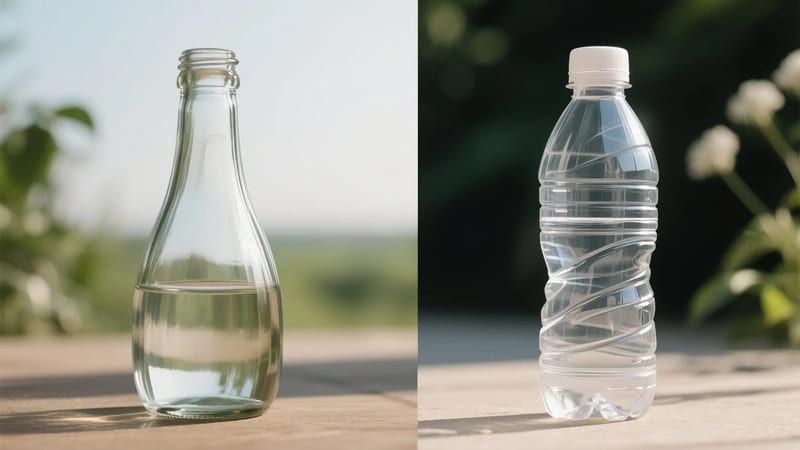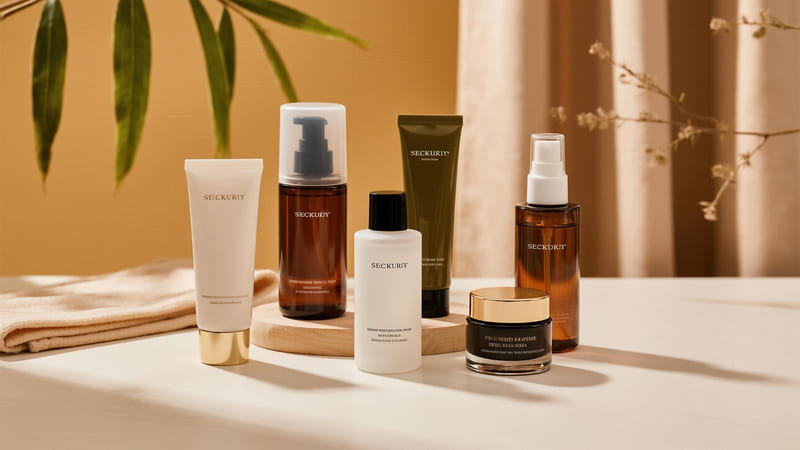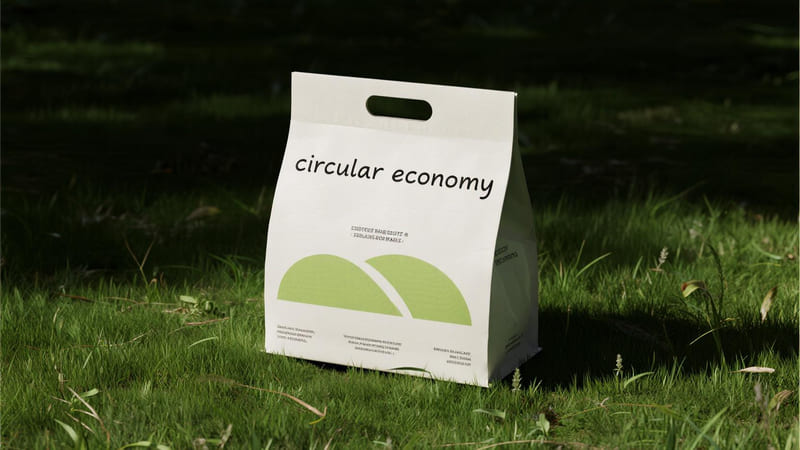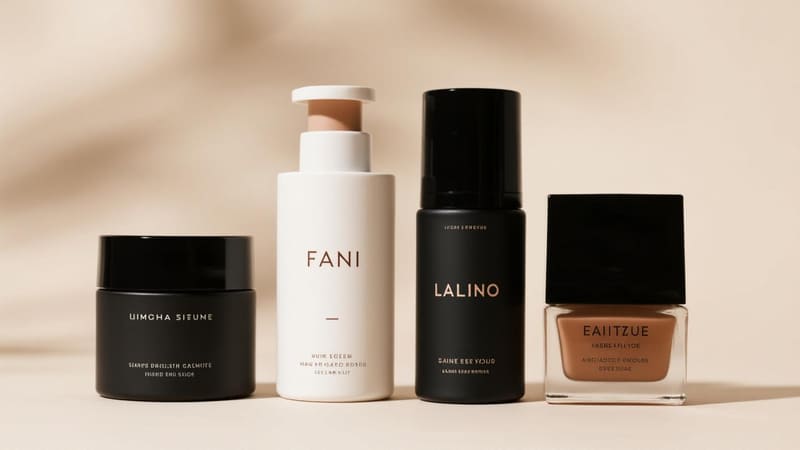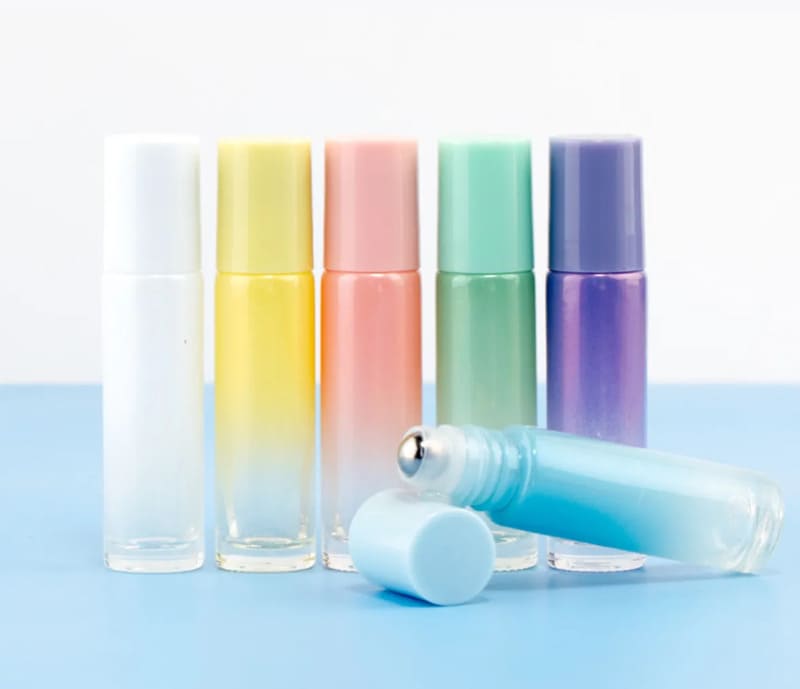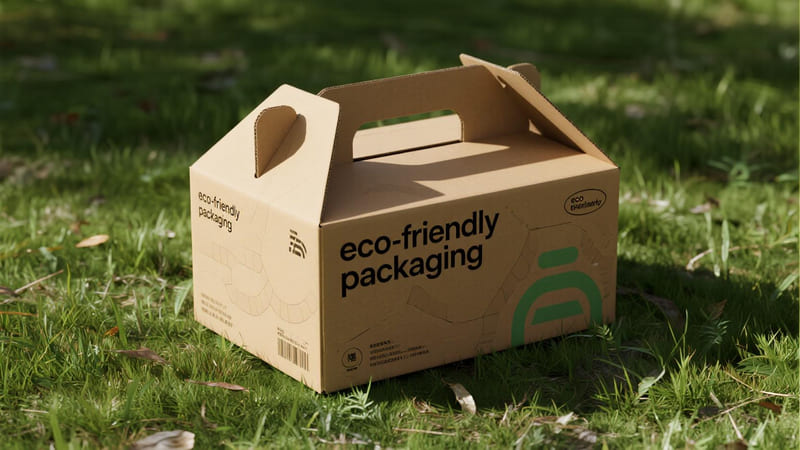Ever wondered why that exquisite Chanel No. 5 or your favorite niche fragrance always comes housed in a glass bottle, rarely plastic? This choice is far from arbitrary; it’s rooted in chemistry, preservation, and the very essence of luxury.
Perfume is predominantly packaged in glass bottles because glass is inert, meaning it doesn’t react with the fragrance oils, thus preserving the scent’s integrity and preventing chemical alteration. Glass also provides an excellent barrier against oxygen, helping to maintain the perfume’s freshness and extend its shelf life.
The decision to use glass for perfume packaging is a deliberate one, driven by the need to protect the delicate and often expensive fragrance within. As a packaging manufacturer with ShineTop for over 20 years, I’ve seen how material choice is critical, especially for high-value products like perfumes. Let’s explore why glass reigns supreme in the world of fragrance.
Why are Perfumes Always in Glass Bottles?
While "always" might be a strong word (some very inexpensive body mists might use plastic), high-quality and luxury perfumes are almost exclusively found in glass. This isn’t just tradition; it’s science and sensibility.
Perfumes are almost always in glass bottles due to glass’s chemical inertness, which prevents interaction with the complex fragrance compounds, and its impermeability, which protects the scent from oxygen and other contaminants that could degrade it over time, ensuring the perfume remains true to its original composition.
The preference for glass in perfume packaging is a long-standing practice based on several key advantages that glass offers over other materials, particularly plastic.
Core Reasons for Glass Dominance:
-
Chemical Inertness (Non-Reactive):
- Perfumes are complex mixtures of aromatic compounds (essential oils, aroma chemicals, solvents like alcohol). These compounds can be reactive.
- Glass is virtually inert, meaning it does not react chemically with the fragrance. This ensures that the scent profile remains unchanged and no unwanted notes or off-odors develop due to interaction with the packaging.
-
Impermeability (Excellent Barrier):
- Glass provides an excellent barrier against oxygen. Exposure to oxygen can oxidize the fragrance oils, altering their scent and reducing their potency over time.
- It also prevents the volatile aromatic compounds from escaping the bottle and stops external odors or moisture from entering and contaminating the perfume.
-
Preservation of Scent Integrity:
- By preventing chemical reactions and oxidation, glass helps to maintain the perfumer’s original creation, ensuring the top, middle, and base notes unfold as intended for the lifespan of the fragrance.
-
Aesthetic Appeal & Luxury Perception:
- Glass has a premium look and feel. Its clarity, weight, and ability to be molded into intricate shapes contribute to the luxurious image associated with fine fragrances.
- The tactile experience of holding a cool, smooth glass bottle enhances the perceived value.
-
No Absorption or Leaching:
- Unlike some plastics, glass does not absorb any fragrance components, nor does it leach any substances into the perfume that could alter its composition or safety.
Mohammed, my client from Iraq who creates high-end custom gift sets, often includes perfumes. He exclusively chooses glass bottles, often with custom metal caps we produce at ShineTop, because he understands that for a luxury fragrance, the integrity of the scent and the premium feel of the packaging are non-negotiable.
Is Perfume Better in Glass or Plastic?
When it comes to preserving the quality and integrity of a fragrance, especially a fine perfume, the choice between glass and plastic is quite clear.
Perfume is significantly better in glass than in plastic for long-term storage and preservation of scent quality. Glass’s inertness and impermeability protect the fragrance from chemical changes and degradation, whereas plastic can react with perfume oils, absorb scent, or allow oxygen permeation.
For the optimal preservation and experience of perfume, glass is the superior choice.
Glass vs. Plastic for Perfume:
| Feature | Glass | Plastic (Typical Types) |
|---|---|---|
| Chemical Inertness | Excellent (does not react with perfume) | Poor to Fair (can react with fragrance oils) |
| Oxygen Barrier | Excellent | Fair to Poor (can be permeable) |
| Scent Preservation | Excellent (maintains original scent) | Fair to Poor (scent can change or be absorbed) |
| Leaching Risk | Virtually None | Potential for plasticizers/chemicals to leach |
| Absorption of Scent | None | Can absorb fragrance notes over time |
| Luxury Perception | High | Generally Low to Moderate |
| Durability | Breakable | More shatter-resistant |
| Weight | Heavier | Lighter |
| UV Protection | Good (if colored/coated), Fair (if clear) | Poor (unless specifically UV-treated) |
| Recyclability | Excellent | Varies by plastic type |
While plastic offers advantages in terms of being lightweight and shatterproof (which is why it’s sometimes used for travel-sized atomizers or very inexpensive body sprays meant for quick consumption), these benefits are outweighed by its disadvantages when it comes to protecting the complex chemistry of a fine fragrance over time.
The alcohol content in many perfumes can also be problematic for certain types of plastic, potentially causing the plastic to degrade or become cloudy.
Is it Okay to Store Perfume in a Plastic Bottle?
Given the preference for glass, you might wonder if it’s ever acceptable to transfer or store perfume in a plastic container, perhaps for travel or convenience.
Storing perfume in a plastic bottle is generally not recommended for long periods. While it might be acceptable for very short-term use (e.g., a few days in a travel atomizer made of high-quality, perfume-compatible plastic like PET), prolonged contact can lead to scent alteration, degradation of the perfume, and potential leaching from the plastic.
While not ideal, there are nuances to storing perfume in plastic.
Considerations for Using Plastic for Perfume:
-
Duration:
- Very Short-Term (e.g., a weekend trip): Using a small, high-quality plastic travel atomizer is generally fine. The limited exposure time minimizes significant degradation.
- Long-Term: Avoid. The perfume is likely to change over weeks or months.
-
Type of Plastic:
- If you must use plastic, choose PET (Polyethylene Terephthalate) or HDPE (High-Density Polyethylene) if specifically rated for alcohol or fragrance compatibility. These are more resistant than other plastics like LDPE or PS.
- Avoid clear polystyrene or cheap, unidentified plastics.
-
Type of Perfume:
- Eau de Toilette (EDT) or Eau de Cologne (EDC): These have lower concentrations of fragrance oils and might be slightly more forgiving in plastic for a short time than highly concentrated Eau de Parfum (EDP) or Parfum Extrait.
- Oil-Based Perfumes (Attars): These are sometimes sold in plastic rollerball applicators, but the plastic must be carefully selected for oil compatibility.
-
Exposure to Heat and Light:
- If perfume is in plastic, it’s even more crucial to keep it away from heat and direct sunlight, as these can accelerate reactions between the perfume and the plastic, as well as degrade the fragrance itself.
Why Decanting into Small Plastic Travel Sprays Can Be Acceptable (Temporarily):
- Convenience: Lighter and less breakable for travel.
- Small Volume: You’re typically only decanting a small amount that will be used up quickly.
- Reduced Air Exposure (in the main bottle): By not taking your large glass bottle, you protect the bulk of your perfume from the potential risks of travel (breakage, temperature fluctuations).
However, always transfer back any unused perfume from a plastic travel atomizer to its original glass bottle if you don’t use it up quickly. Never store your main perfume collection in plastic.
Why Use Glass Bottles Instead of Plastic?
The choice of glass over plastic for many premium products, especially liquids like perfumes, beverages, and pharmaceuticals, is based on a clear set of advantages that glass offers.
Glass bottles are often preferred over plastic because glass is chemically inert (doesn’t react with contents), impermeable (excellent barrier against gases and moisture), non-porous (doesn’t absorb flavors or odors), perceived as more premium and sustainable (highly recyclable), and can be easily sterilized at high temperatures.
The fundamental properties of glass make it an ideal choice for maintaining product integrity and quality.
Key Advantages of Glass Over Plastic:
-
Chemical Inertness:
- Glass does not interact with its contents, ensuring the product’s original taste, smell, and composition are preserved. This is crucial for food, beverages, pharmaceuticals, and cosmetics like perfume.
- Plastic can sometimes leach chemicals (e.g., BPA, phthalates, though many are now BPA-free) or react with acidic or oily contents.
-
Impermeability:
- Glass provides a near-perfect barrier to oxygen, carbon dioxide, moisture, and other gases. This prevents spoilage, oxidation, and loss of carbonation (in beverages).
- Plastics vary in their barrier properties; many are somewhat permeable to gases over time.
-
Purity & No Flavor/Odor Absorption:
- Glass is non-porous and will not absorb flavors or odors from its contents, nor will it impart any taste or smell to the product.
- Plastic can sometimes absorb flavors/odors or allow them to transfer.
-
Premium Image & Aesthetics:
- Glass generally has a higher perceived value and a more premium look and feel than plastic. Its clarity, weight, and design possibilities contribute to this.
- This is a key reason why luxury brands, including many in the cosmetics sector like Anna’s in Thailand (for her serums), often choose glass.
-
Sustainability & Recyclability:
- Glass is 100% recyclable and can be recycled endlessly without loss of quality or purity.
- While many plastics are recyclable, the process can be more complex, recycling rates are often lower, and plastic quality can degrade with repeated recycling.
-
Temperature Resistance & Sterilizability:
- Glass can withstand high temperatures, making it suitable for hot-fill processes or sterilization (important for food and pharmaceuticals).
-
Transparency (or Color Options):
- The natural transparency of glass allows consumers to see the product, which can be appealing. Glass can also be colored (e.g., amber, green, blue) to protect contents from UV light.
While plastic has its advantages (lightweight, shatter-resistant, often lower cost), for products where purity, stability, and a premium image are paramount, glass often comes out on top. This is precisely why the fragrance industry has remained loyal to glass for its most precious creations. At ShineTop, we produce a vast array of glass bottles and jars, understanding these inherent benefits for our cosmetic and perfume clients.
Conclusion
Perfume is housed in glass bottles primarily to protect the delicate fragrance from chemical reactions and degradation, ensuring the scent remains true and lasts longer. Glass’s inertness, impermeability, and premium aesthetic make it the superior choice over plastic for preserving the integrity and luxury of fine fragrances. While plastic may serve for very short-term convenience, glass is the guardian of perfume’s soul.

